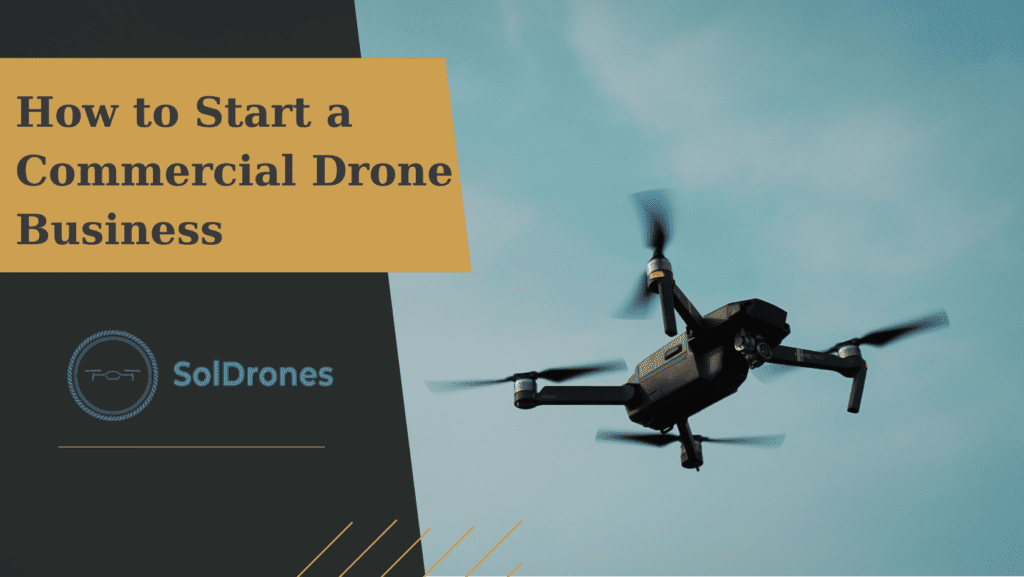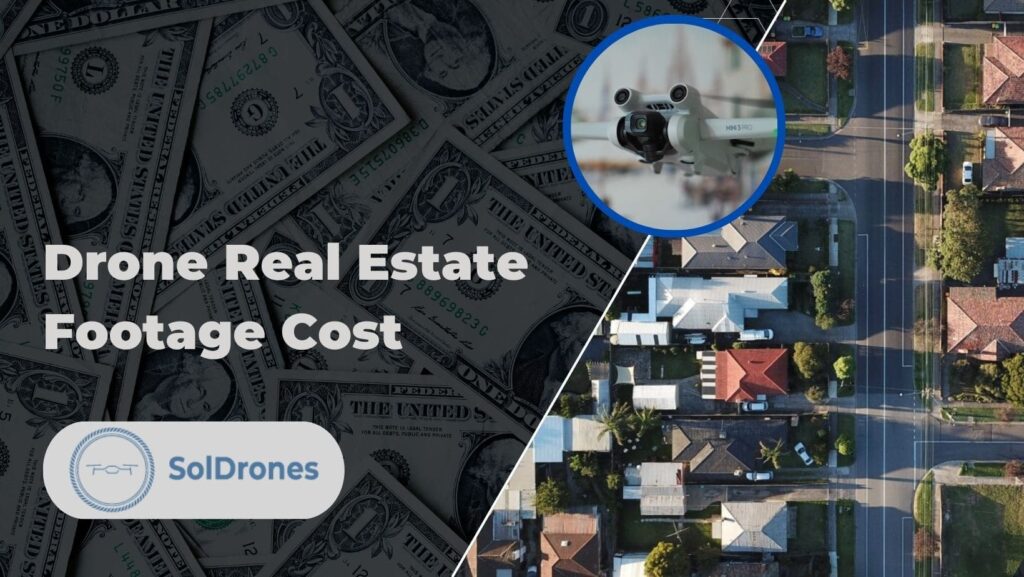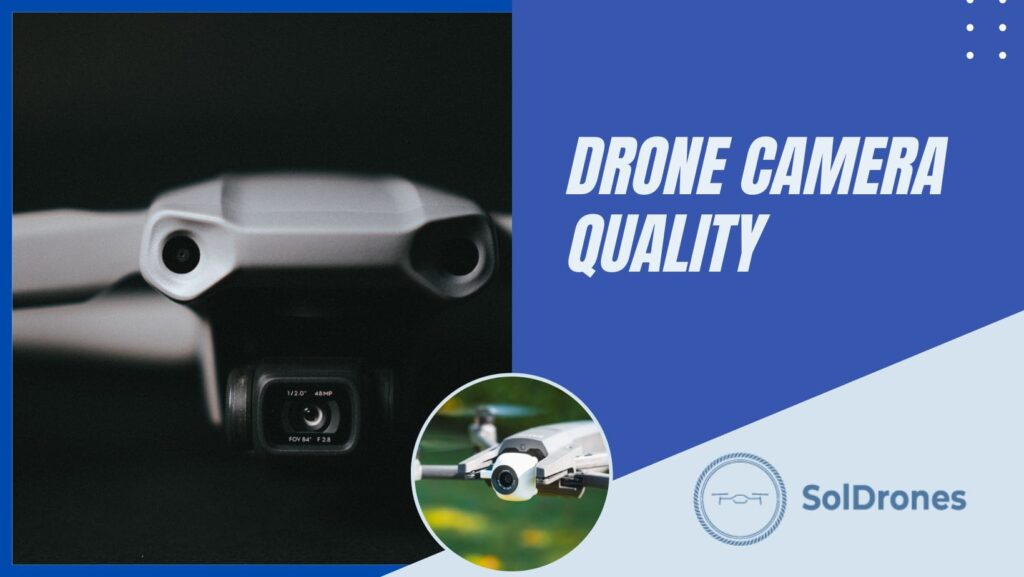As you’re probably aware by now, the commercial drone industry is taking off and the industry as a whole has a very optimistic outlook.
Drones have changed the way we see the world. Aerial photography previously only available via helicopters that cost thousands of dollars is now at the fingertips of anyone willing to purchase a drone, and is much more affordable.
The photography and videography that can be achieved through drones have catalyzed an entrepreneurial movement of pilots around the globe seeking to provide value to others in need of aerial photography throughout industries like real estate, construction, entertainment, and more.
If you’re just starting off your commercial drone business or looking to scale your drone business and start earning more, we’ve created the perfect business operations framework just for you.
Highlights:
- Some drone businesses are earning $500+ per hour for their services
- Like all industries, most drone companies fail
- Researching, niche selection, and business setup are some of the key steps to starting a commercial drone business
Why Start A Commercial Drone Business
If you’re not already past the point of understanding why you want to start a commercial drone business, look no further.
As much as drone pilots are wanting to fly drones and capture stunning photography and videography, businesses are needing drones for photography, photogrammetry, inspections, and many other use cases.
Specifically, drone photography and videography are incredibly marketable. Take real estate drone photography, for example…some real estate drone pilots are able to charge real estate agents $500+ per hour!
Weddings, sports events, and movie production agencies are willing to pay a premium for the right drone photographer. Simply put, while there are more and more commercial drone photographers entering the industry, their services are becoming in high demand.
Another primary reason why you should consider starting a commercial drone business is because of the advancements in technology. It’s only going to get easier for businesses to invest in and utilize drones for their operations. From improved cameras and sensors to advanced software and automation, the capabilities of drones are expanding and becoming more accessible to small and medium-sized businesses. On top of that, drones are becoming much more cost-effective and easier to use for non-technical operators.
Ultimately, if you’re an entrepreneurial-minded individual that enjoys being outdoors and capturing photography of nature or urban environments, or simply flying UAV aircrafts, starting a commercial drone business is a wise investment as the industry is projected to grow significantly, presenting new and diverse opportunities to service clients.
Commercial Drone Business Plan
Once you’ve committed to starting your commercial drone business, you’ll want to develop a sound business plan. Just like any other industry, most businesses fail to ever become profitable, and you’ll want to avoid being a victim of a failed startup.
To help guide you along your way to running a successful commercial drone business, we’ve outlined 6 key steps in the Commercial Drone Business Plan that will quickly start a commercial drone business as quickly as possible.
- Research
- Legal Requirements
- Niche
- Business Setup
- Marketing
- Scaling Your Commercial Drone Business
The sections below explain in detail each step.
Commercial Drone Industry Research
When you’re just starting off as a commercial drone business, you’ll want to conduct ample research so you know exactly what you’re getting yourself into. As the old saying goes: measure twice, cut once.
Here are a few key tenets to keep in mind to guide your research framework:
- Legalities & FAA Regulations: Familiarize yourself with the Federal Aviation Administration (FAA) guidelines and regulations for commercial drone operation. For example, to earn an income as a commercial drone pilot, you must obtain a Remote Pilot Certificate by passing the Part 107 exam, as well as register your drone with the FAA.
- Market and Competition: Analyze the current landscape of drone service providers and identify potential areas for growth and differentiation. By developing a better understanding of your potential customers and the market competition, you’ll be able to properly set up your business for success with marketing and sales.
- Technology and Equipment: Research the technology and equipment that’s best for the type of business you wish to operate. Look into drone cameras, sensors, and video editing software. Determine which of these will best suit your business needs and budget.
- Financing: Research the different financing options available to you, such as bank loans, crowdfunding, and venture capital, or bootstrapping your business with your own funds.
Legal Requirements
As mentioned, the FAA has regulations for all pilots seeking to fly drones in the United States. If you’re abroad, there are other country-specific regulations you need to also be aware of. It’s in your best interest to work with the FAA’s guidelines, rather than against them. Failure to comply can result in hefty fines and restrictions.
A few legal requirements to keep in mind include:
- Certifications: Make sure you’ve passed the Part 107 exam and are certified as a remote pilot.
- Registering Your Drone: Register your drone with the FAA.
- Flying in Legal Airspace: Only fly in legal airspace. The best resource in the U.S. to determine authorized airspace is the B4UFLY app, which is an FAA-partnered app that allows drone pilots to access an interactive map that identifies airspace classes.
Niche Selection
Do you want to be a drone pilot that photographs for real estate agents and weddings, or do you want to fly agricultural drones that pesticide plants? When it comes to selecting a commercial drone business niche, it’s critical to consider how you’re going to stand out from the competition while maintaining a steady customer flow.
Some factors to consider when selecting your drone business niche include:
- Equipment Required: Will your niche require a heavy-duty drone like the DJI Phantom 4 Pro, or something more simple, like a DJI Mini 3 Pro? Typically, the more sophisticated the drone, the higher earning potential.
- Environment: Do you want to be spending time in nature flying a drone through farmlands or national parks, or do you prefer inspecting buildings? Or, in the case of real estate drone photography, taking photos and videos in and around houses and properties.
- Content Production: Drone footage and images can require editing and post-production that can often deter pilots and photographers. It’s important to understand your willingness to edit and the content you capture through video editing software before making an extensive commitment to your niche.
- Services: Photography and photogrammetry and the primary services offered by most commercial drone pilots. There are other services such as agricultural monitoring or search and rescue support during natural disasters.
Business Setup
Determine what business setup and structure most benefits your entrepreneurial goals. Your drone business can operate as a sole proprietorship, partnership, limited liability company (LLC), C corporation, or S corporation.
Freelance drone pilots often fly under a sole proprietorship or LLC structure. Sometimes it makes sense to set up your drone business as a partnership, C corporation, S corporation, or other types of corporation. Each structure has its own advantages and disadvantages, so be sure to choose one that aligns with your goals and potential liabilities.
It’s also necessary to obtain insurance coverage to protect your business and assets. In fact, the FAA requires drone operators to have liability insurance.
Finally, it’s always recommended to have a record-keeping system. This will help you manage your finances and ensure your compliant with tax laws.
Marketing
One of the most difficult aspects of all businesses is finding new customers. Ultimately, finding new customers is the only way you’re going to generate income and improve your profit margins. In some cases, you may be able to rely on relationships you’ve established throughout the years to generate new customers. But more often than not, you will need to deploy marketing and sales tactics that generate brand awareness and new leads.
Some of our top suggestions for marketing your drone business include:
- Digital Properties: Create a website for your business, along with social media pages on Facebook, Instagram, and LinkedIn.
- Networking: Attend industry events and meetups that attract your ideal buyer personas.
- Portfolio: Create a portfolio to showcase your work. In many cases, you can use an Instagram channel as a digital portfolio.
- Partnerships: Form partnerships with associates throughout the industry and exchange value with each other.
- Sales Outreach: Research companies that could utilize your drone services and reach out via email and phone, offering your services with unique value propositions.
Scaling Your Commercial Drone Business
Mastering the fundamentals of being a commercial drone entrepreneur will take time, but in the long run, is totally worth it. Once your business is up and running, you’ll want to double down and scale so you can watch your profits grow. Building a business that is highly discoverable for your ideal buyer personas and brings them value is the key to success. Leverage your network, marketing, and skills to get in front of the right customers and you’ll be destined for success.
We wish you the absolute best in your commercial drone business ventures and happy flying!







